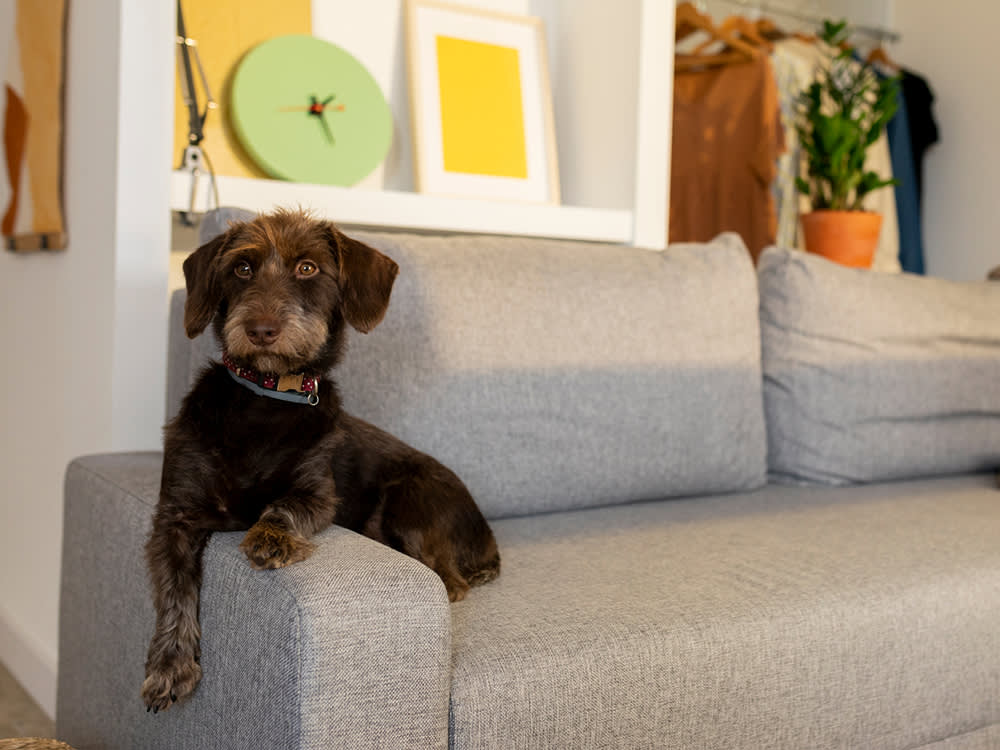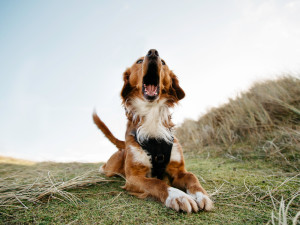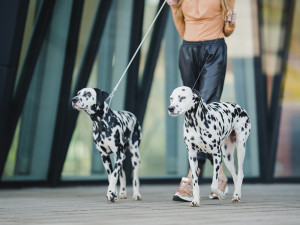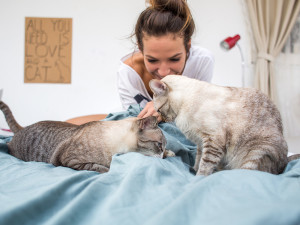Turns Out Dogs Can... Smell Time
There’s no time like the present, according to your pet

Share Article
Dogs tend to live in the moment, accepting each treat, snuggle or toss of the tennis ball as the sole reason for their existence with a charming single-mindedness. Yet their understanding of time can be complex. Many dogs are able to anticipate predictable events accurately, which is why they leap on the couch to look out the window when the kids are just about to come home from school, or adults are nearly home from work. Even more dogs appear to know, from their own stomach’s rumblings, that the dinner hour fast approaches (or, in many cases, that dinner is supposed to be in precisely 58 minutes). And according to New York Times bestselling author and dog cognition researcher Alexandra Horowitz, “Dogs smell time.”
What does it mean to smell time?
Unlike humans, who experience the world visually, dogs detect changes to their environment – including who has been there and for how long – through their impeccable sense of smell. This allows them to make predictions about the future based on patterns they’ve sniffed out. Or as Horowitz puts it in her book, Being a Dog: Following the Dog Into a World of Smellopens in new tab, pups’ powerful noses allow them to perceive the passage of time.

Get (totally free) deals for food, treats, accessories, tech and way more pet parenting must-haves.
That’s not to say our dogs are mystical or otherworldly; it’s just that dogs can understand much about the past because of their extreme sensitivity to smell. Odours change over time, sometimes predictably. When you leave the house to go to work each day, the smell of you in the house decreases with each hour of your absence, and your dog can detect the difference. Perhaps your dog has learnt through repetition that when the smell of you has weakened to a specific degree, you come home. In other words, the strength of your odour predicts the time of your return. So, if you thought no one noticed that new fragrance you’ve been trying out, think again.
How do dogs smell time?
This degree of scent discrimination is not hard for most dogs. Many dogs can, for example, tell which way to follow a scent trail by heading from where it is weakest (less recent) to where it is strongest (most recent) even when the difference is minuscule. When dogs smell weak odours, they are perceiving events of the past. Because dogs can detect both new and old odours, they are perceiving events and substances across intervals of time.
Each day, even in the same place, smells help dogs understand the passage of time. As air heats up over the course of the day, air currents change and move around in space, taking the molecules responsible for odours with them. Dogs, with their sensitive noses and large olfactory lobes, are able to sense the movement and presence of chemicals people barely detect, if at all. Though we humans may detect daily patterns in light or even sound, our ability to smell clues about the passage of time is barely perceptible. Yet, dogs detect odours that reveal past happenings in complex ways we are only beginning to understand.
If we needed further evidence that our dogs are intelligent complex beings, Horowitz’s cognition studies can provide just that. Dogs have “hundreds of millions more” scent receptor cells than we do, which is “probably partially responsible for their increased acuity,” she concludes.

Karen B. London, PhD, CAAB, CPDT-KA
Karen B. London, Ph.D., is a Certified Applied Animal Behaviorist and Certified Professional Dog Trainer who specializes in working with dogs with serious behavioral issues, including aggression, and has also trained other animals including cats, birds, snakes, and insects.
Related articles
![Dog Lays On The Ground Barking]()
Dog Speak: The Sounds of Dogs
Decoding the many sounds your pup makes
![Cat grabbing onto ledge of table and looking to the left]()
Is Your New Cat Stalking You?
Yes, they are right behind you
![Owner walking two Dalmatians downtown]()
How To Stop a Dog From Pulling on the Lead
Tug of war every time you head for a walk is not the one
Do Cats Get Jealous?
Is there a green-eyed monster hiding in that adorable ball of fluff?




